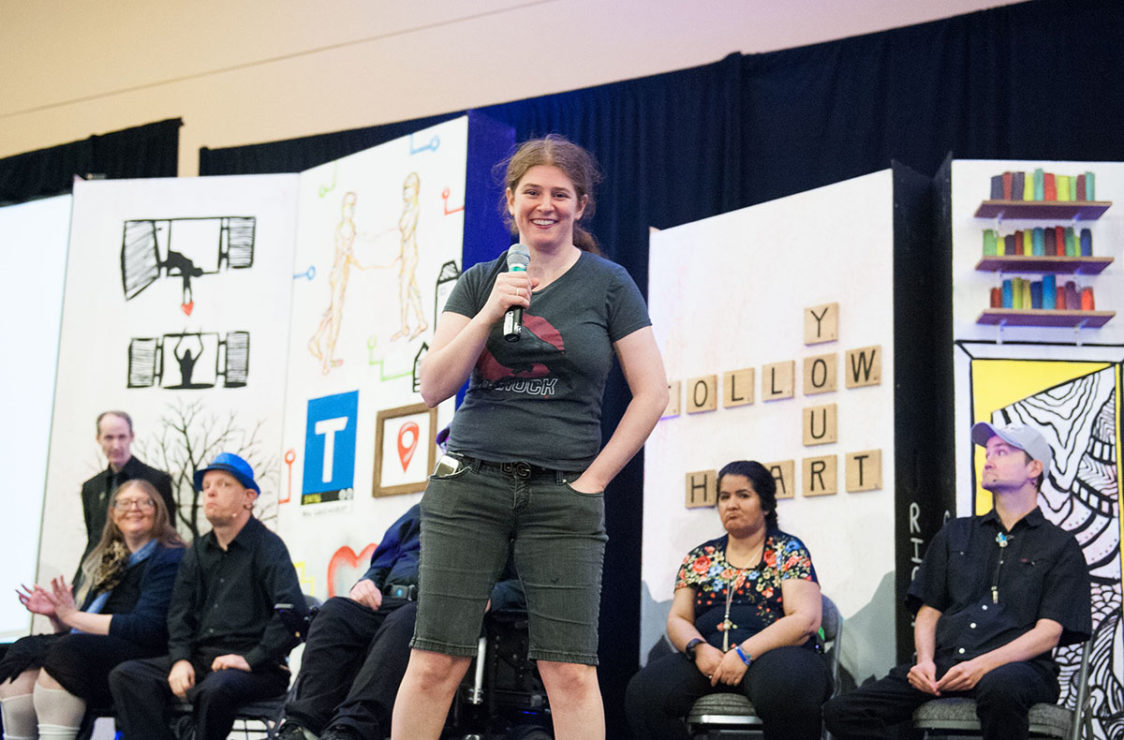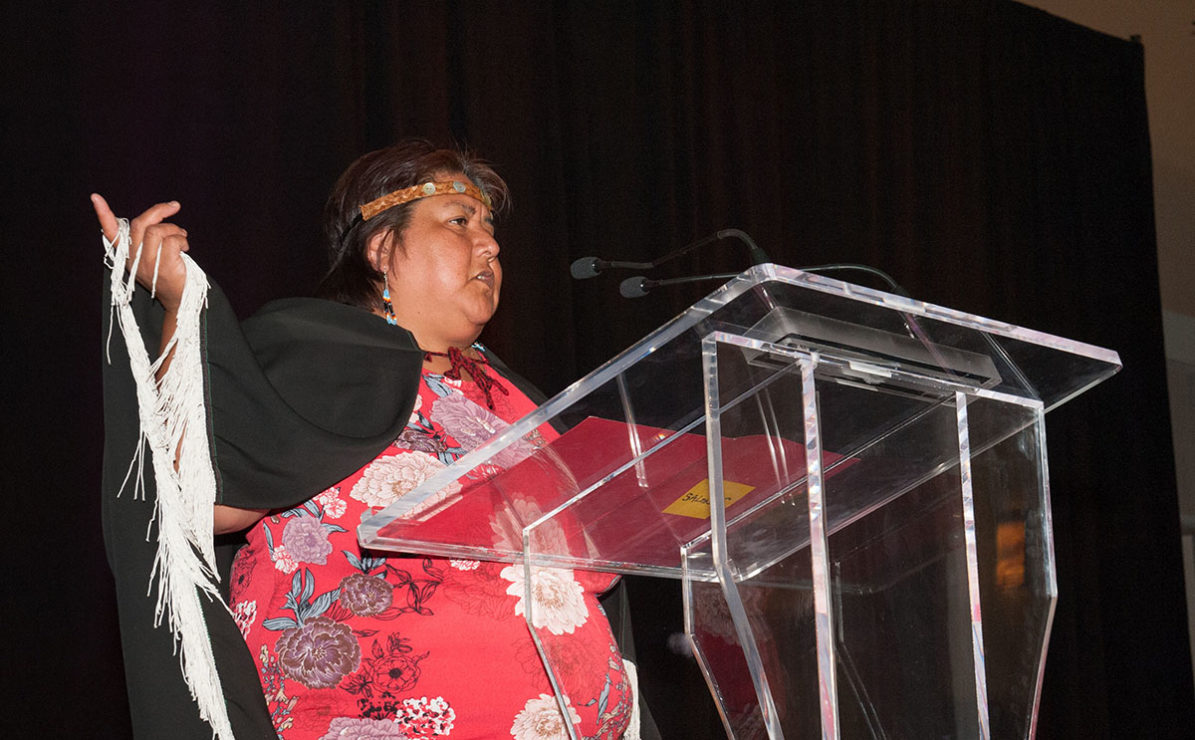The 2019 conference sought to “learn, celebrate, and discuss issues around intellectual disabilities”

When picturing a conference, many people think of academics, lengthy speeches, and forced networking socials. The 43rd annual Inclusion Conference broke from this stereotype in a few ways — it provided booths with meaningful resources, workshops where attendees could try their hand at “self advocacy bingo” or brainstorm how voting could be more accessible, and brought a captivating keynote speaker that walked throughout the large hall and used personal anecdotes instead of academic terminology or theory.
The conference delivered on its promise to bring together those in the inclusivity sector to “learn, celebrate, and discuss issues around intellectual disabilities.” This year, the conference was held at the Victoria Conference Centre from May 23-25, and sold out with over 500 attendees.
All attendees were encouraged to download an app to access the full conference schedule, directions, and other logistical information. One of the conference’s many sponsors was UVic’s own Society of Students with Disabilities (SSD).
The first day opened with a land acknowledgment and welcome from Florence Dyck of the Songhees Nation, greetings from the Honourable Shane Simpson, Minister of Social Development and Poverty Reduction, and a resonate music performance by First Nations group M’Girl.

A common message from all of the initial speakers was that progress has been made, but there is still a lot of work to do. I spoke with Dr. Michael Prince, a social policy professor at UVic and a long-time volunteer with groups that advocate for inclusivity, who reflected on the conference’s importance.
“We are in a transition,” Prince said, “moving from that history to brighter futures.”
In the last half century, Prince said the dialogue around disabilities has changed. Instead of discussing people with disabilities in terms of handouts and charity, the conversation has now shifted to a human rights based approach regarding the barriers they face. These people, Prince emphasized, are fellow citizens.
Not too long ago, there was an effort to segregate and eliminate people with disabilities from the population through institutionalization. For over 100 years, institutions like The Glendale Lodge in Victoria (now the Vancouver Island Technology Park) operated in our province. In these places, people with intellectual disabilities were treated as sub-human, and subject to abuse and forced labour. When the first of B.C.’s institutions closed in 1985, the residents were transferred from the Tranquille institution to the Glendale Lodge and sent miles away from their families. The last two of these institutions in B.C., Glendale and Woodlands, closed in 1996.
One of the organizations hosting the conference, InclusionBC, was started over 60 years ago by a group of parents that simply wanted their children to go to school. Now the organization has grown to provide resources, aid in the self-advocacy for individuals with disabilities, and support the development of inclusive government policies.
Today, Prince says kids with disabilities are still being deprived of the basic right to an education. He worries that many may be expelled from school because of a lack of supports in the classroom, and a budget for that support. Having inclusive classrooms, and building an inclusive society more generally, ensures people with disabilities are treated with dignity.
“If we start to remove barriers, everyone benefits,” Prince said.
Federal legislation on inclusivity is currently in the House of Commons, called the Accessible Canada Act. Three provinces currently have legislation on this — Manitoba, Ontario, and Nova Scotia. Minister Simpson told the crowd at the Inclusion Conference that B.C. will be working towards developing accessibility legislation for the province next year, which he said will be harmonized with federal legislation.
Many involved in the conference and the inclusion movement view it as part of a larger social effort that resonates with similar causes, such as Indigenous self-determination and rights for transgender people. All of these movements are based off a similar dialogue — one that prioritizes inclusion and emphasizes a need for progress away from a harmful history.
I attended the keynote address by Al Condeluci, a vibrant man that discusses “social capital,” or the importance of building relationships. Early on in his career, he was taught to approach people with disabilities as if they had a de facto problem that needed to be solved. As Condeluci began working in this sector and advancing into graduate studies, he came to the important realization that people with disabilities are not the problem, and the first step to removing barriers is to change perceptions in the community towards inclusion. He stressed relationships building as crucial for the way forward. Sitting in the conference and listening to Condeluci discuss this topic, I couldn’t help but think that this very conference was encouraging those relationships within British Columbia and building inclusion through conversation.
From the booths to the workshops and everything in between, the Inclusion Conference stood by its principles of treating everyone with respect and building welcoming spaces to make our community more inclusive. Next year, the conference will be held in another city as the location rotates throughout the province.






